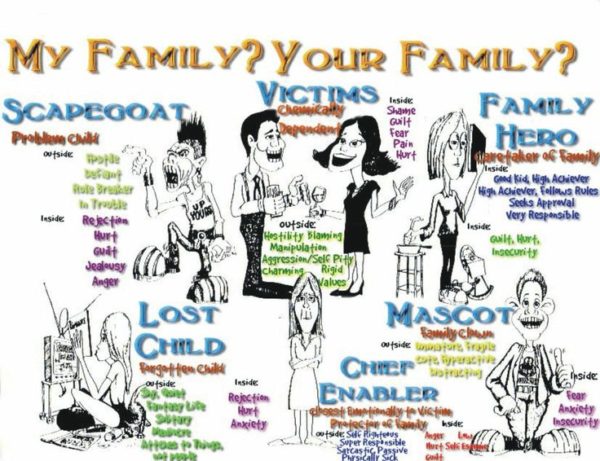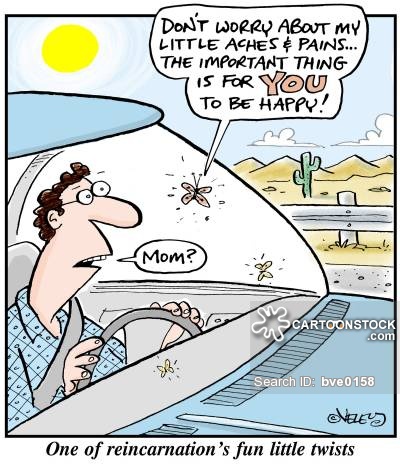Yesterday, Erik really pulled a number on my son-in-law, Nick. While he was in the shower, his shampoo bottle flew off the shelf at him. It didn’t just drop as if it had fallen. It flew in his direction. Erik the creeper. I don’t think Nick liked Erik seeing him naked. Then, after the shower, he made the lights over the breakfast table sway on their own. Long ago, Erik appeared before Nick as an bright orb. Gotta keep your bro-in-law on his toes!
Also, as you know, we’ve had some people claim to channel who really aren’t and some are depicting him as a lost soul or demon. These things have to be suspected. The only people I authorize to channel Erik are those on my links list under the favorites tab on the homepage. Blog member, Sue B. talked to a lawyer about my situation, and he said that those who channel my son without my express permission is actually committing a crime. So, you guys let me know if you come across anyone doing so! Thanks!
Here’s a message from Veronica you shouldn’t miss: Join Veronica Drake and ERIK at my kitchen table every month as we answer your questions. First call is December 15th! http://veronicadrake.
Here’s our session on Dysfunctional Families courtesy of volunteer transcriptionist, Kathy Cook. Thanks so much, Kathy! Be sure to book a session with Veronica at www.veronicadrake.com.
Veronica: Hello!
Elisa: Hi again Veronica. Hi Erik.
Erik: Hi Mom. How are you?
Elisa: I’m doing fine. So, we’re going to talk about our last subject for today, and that is dysfunctional families. There are so many of them. I know that mine – my family of origin – was that way.
Erik: Who isn’t? Who isn’t Mom? Who isn’t?
Elisa: Well, how would we define a dysfunctional family anyway? That might be a good place to start.
Erik: The definition of a dysfunctional family is where all the souls walk around with their own agenda. There’s no connection to anybody else’s agenda.
Elisa: Oh, okay, so lack of connection.
Erik: Yeah. Self-centric. They lose track that they’re souls in body form. Me, me, me, me, me.
Elisa: You can’t do that when you’re raising children, at all.
Erik: But unfortunately, that’s probably the crux of a lot of families. The gist, the meaning, that’s the hub of the family. A lot of people get wrapped up in their self-centeredness and their own agendas.
Elisa: Well, what percentage of the families in the world do you think are dysfunctional?
Erik: It’s huge, probably 90 percent.
Elisa: Oh, my gosh. Some worse than others, of course.
Erik: There are varying degrees. One on this spectrum might be up here, one’s down here. There are varying degrees. And that all ties in with why they came here, what’s going to happen, why this has to play out like that. Essentially, a family caught a part of the contract we come in with. They’re getting a piece of the contract, and are united together, but they’re not fulfilling the words on the contract. They went Rogue.
Elisa: I’m sure that the members of a dysfunctional family are that way to honor some sort of spiritual contract, like teaching another member of the family self-empowerment, or loyalty, or connection, or love, or self-love. There’s probably lots of spiritual contracts woven into this whole thing about dysfunctional families.
Erik: Think about it like this. When you throw your clothes in the washer, we try to throw the whites in together and the darks in together, we don’t want to mix them up. So we’re keeping the family as one piece of this and we’re all going in. We’re being spun around, wrung out, and we’re going through life, and ultimately, it’s a matter of who came out of there most clean, with the cleanest agenda, can be the leader of the family. In other words, in our world we tend to erroneously call the male the lead of the family. That’s supposedly the soul that came out the cleanest. Now we know that’s not true. But initially that’s what we come down with. That’s how it’s figured. So who’s going to be the dad. Well, I’ve worked through this and I’ll be the dad here. that sort of thing. All these little pieces that are in this laundry, in this family, all have free will and all have the option to follow what’s written. It’s all written down based on what they agreed to. And if they decide not to follow it, this is where things go completely off center. This is where we don’t recognize mental illness. We don’t look at Dad’s drinking problem. We choose to not see it. If they just stayed on script!
Elisa: Good luck with that. So do you think with a lot of dysfunctional families, mental illness is at the core? Most of them, maybe?
Erik: Absolutely! On some level. There are varying degrees of mental illness. The fact that you need all the glasses to line up in the cabinet is some sort of mental illness. So there’s a degree. Schizophrenia is another degree of mental illness. So it’s all varying degrees.
Elisa: So if you have a father with narcissistic personality disorder and a mother with borderline personality disorder…. There are so many things that can create a dysfunctional family and mental illness.
Erik: The biggest thing I want to get across is that we are more than our circumstances and our situations.
Veronica: He’s really adamant about this. His attitude right now is nonchalant, but not disrespectful. He’s saying “Okay, this is what you came in with, this is what you’re supposed to deal with.” He’s matter of fact about it, “yeah, this is what it is.” When he was here, he knew something was off, but he couldn’t quite put his finger on it. He’s saying there are a lot of people like him out there.
Elisa: What about the divorce rate? It seems to be so high. Why do people divorce?
Erik: Because they think they can get rid of what hurts. The reality is this. It’s okay to divorce, after the souls have evolved together.
Elisa: I think that sometimes we marry people and we’re just supposed to complete some sort of contract. Maybe it’s just giving birth to one of the children.
Erik: Always.
Elisa: And then it’s over with and you find another person that will help you evolve, mutually.
Erik: The human brings the ego into it and all of a sudden it becomes about “look what you did to me” and “you did that to me.” If we could just get to where I am, we would understand [unintelligible]. So A & B get together and make C,D, & E – maybe that was their point. And instead of A going over to get with G, before they get rid of B, why don’t they figure out that this is a soul contract and just say, “See ya later” in a nice loving way. Love – people don’t understand Love and what it is. It is NOT disposable. You do not throw love away! (Adamant)
Elisa: But you know, people get divorced and each side says, “you hurt me,” “no, you hurt me worse.” So it’s the ego and fear.
Erik: Well sure, but if it was love that brought them together, and on some level it was love. The evolved consciousness says everything is of love, so I come to you in love, with love, and then why can’t I leave you. Because it’s the human ego. This is what I want to raise awareness and consciousness about.
Elisa: But how can you tell if you’re wanting a divorce because your contract is finished or if it’s some other reason, like the couple is not working hard enough to salvage the relationship because the contract is not finished?
Erik: Mom, it’s like when you’re taking a poop. How do you know you’re done?
Elisa: Ok, so you just know you’re done.
Erik: You just know you’re done.
Elisa: What are little hints that you need to stick it out and get some help? Couples therapy, nonviolent communications course, etc.? What are some hints will a couple have that they need to continue to fight?
Erik: There should be a contract- not the marriage license or the soul contract – that says, “In the event of ____, you will do x, y, z in a certain amount of time….it’s like a checklist. It’s like knowing you have to go to the bathroom. You just know something is not right. Something is bubbling up. Something needs releasing.
Elisa: So you should listen to your intuition and feel whether you should leave the relationship or work on it and try to save it. Versus here’s what I got out of the relationship, I’m grateful to it, and let’s move on in love.
Erik: Let’s clarify: In no way, shape, or form, should either one be being abused. That’s a contractual break right there. That’s a clean break. But what happens is that a lot of people in their contract, come in and sign up for some sort of torture, believe it or not.
Elisa: Yes, because there’s a big lesson there, like self-love. You just have to recognize it and be grateful for it, and let it go.
Erik: I don’t anyone who is watching/reading this and is in an abusive relationship to say, “I have to get my checklist out,” because love doesn’t hurt all the time. It’s not about the hurt.
Elisa: And any kind of abuse, physical, emotional, mental. So what do you tell a person who is undergoing that kind of abuse in a relationship? What should they do?
Erik: First of all, there’s no power. They feel powerless, which is why they stay. And the abuser feels like he needs more power. So it’s “I’m hungry; you’re feeding me.” So how do you make yourself not be prey? You have to get your wits together, like sneaking off in the middle of the night when no one’s looking, doing your self-development work. The answer is always touch the soul. Go into the soul. Listen to the soul because the soul holds your contract. The soul is always whispering to us. Whispering. The soul is not panic, the soul is not fear, the soul is not drama. The whisper is “something doesn’t feel right in my life.”
Elisa: Riaise your voice, soul! I’m hard of hearing! What other kinds of spiritual contracts are in this whole abusive relationship setup? Like self-love, self-empowerment?
Erik: Values. Defining values. Values are one of the ways that we can strengthen the soul. In other words, what do you value? If you come in as an abused soul and you’re here to play out that abuse, you’re not going to have a lot of things that you value or a lot of things you respect, including yourself. So the number 1 thing to look at right now is what do you value in life? And if it’s being taken way, or shut down, or repressed in any way shape or form, you need to look at it.
Elisa: What about people who want to stay together? What should they do? What kind of help should they get?
Erik: Talking always helps, but the bigger thing is feelings. We call what we feel “second nature.” But that’s not true, what we feel is “first nature.”
Elisa: Yes, Erik says, “feel first, think second.”
Erik: If you feel like you’re drifting, drifting, drifting, feel it, acknowledge it, and then come together over it. In reality, come people may be drifting. That’s cool. Go drift, but do it in love and peace.
Elisa: So, what specific help should they get?
Erik: Counseling. I’m big on Spiritual Life Coaching. There are some times when you need the traditional archaeological dig, where someone needs to go in and get in your head. But the beauty of the spiritual life coaching is that they’re bringing the whole soul in, not just your head.
Elisa: It seems like the divorce rate is higher than it used to be. If that’s right, why?
Erik: Well, obviously there are more people. But it levels out because people are dying. It’s really not about tracking that. I don’t want people to get married thinking “I know this can end.” There are pre-marital classes. Why not spiritual pre-marital classes? Remember we talked about the mental illness component of it. Maybe the dad has some of that, so he has a little more on his plate to handle. There’s a way to work through that so that the stability is there before they bring a child in. So spiritual pre-marital counseling.
Elisa: My sister is a big advocate of Landmark, The Forum, a course where you find out everything that makes your tick. That might even be a good situation.
Elisa: What about children of divorced families?
Erik: They’re only at a disadvantage because of the parental involvement, because kids are kids are kids. Be honest with yourself about what you’re giving your kids. They often become pawns in divorce. It’s the human ego coming into play. In this case, I’m done with “it’s in my contract.” Now, you’re bringing the kid into it, how do you protect the kid? The reality is that the parents have to think bigger than themselves. You don’t stop being a parent and caring about this child because you don’t like your spouse any more.
Elisa: Demonstrating love between the parents and having an amicable relationship would help.
Erik: Respect. No matter what. People get hurt every minute of every day, whether it’s physical, emotional, or verbally. And every day somebody has the choice to not react back.
Elisa: Right, we have the choice to not react out of fear, and to react out of love. Anything else you want to say about dysfunctional families?
Erik: Mom, I never felt the dysfunction! (laughing)
Elisa: We were probably in that 90%, but we always loved each other, all of us.
Erik: And that will never change.
Elisa: Thank you, Veronica. You can check her out at www.veronicadrake.com.




